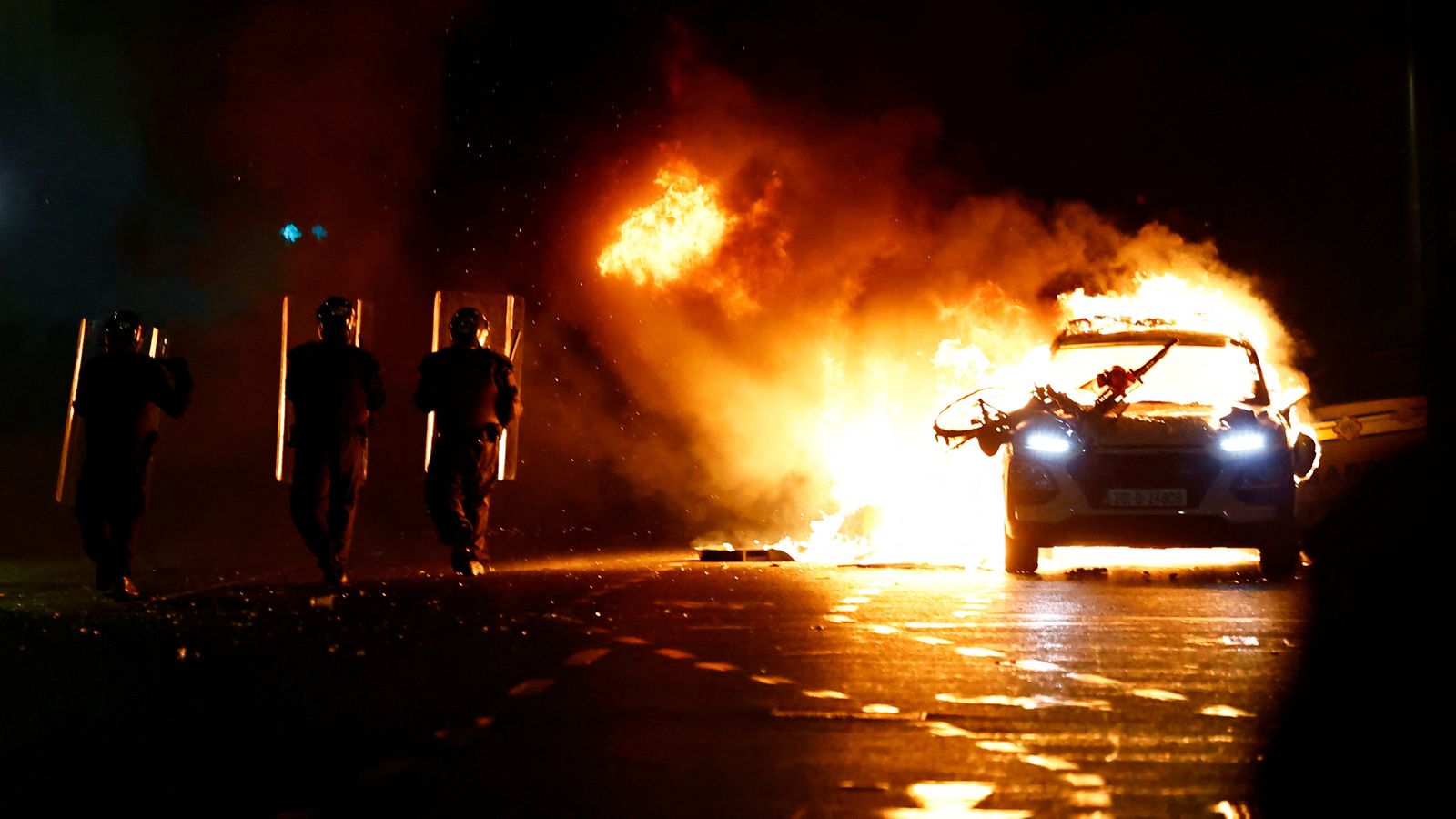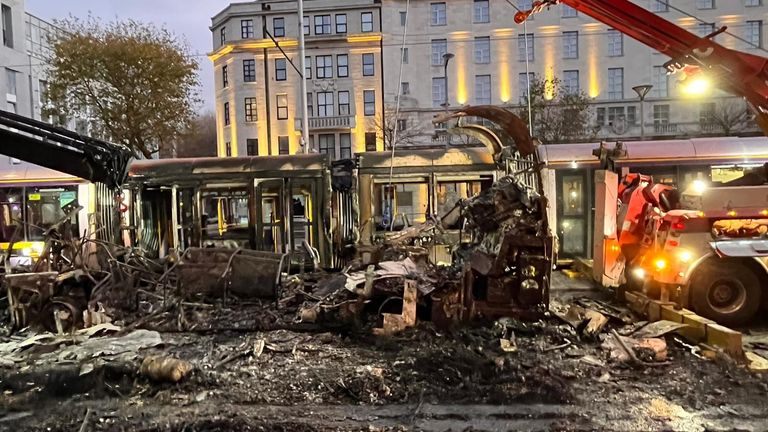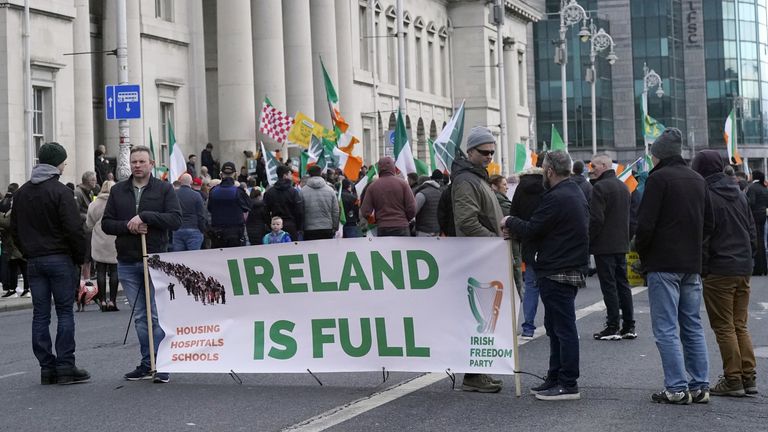On 23 November 2023, Ireland looked on, mostly horrified, as buses burned, shops were looted, and police officers attacked.
The mass violence, highly unusual for Dublin, was sparked by misinformation that a mass stabbing at an inner city school that left three young children and a care assistant injured was racially motivated.
Hundreds of people swarmed through Dublin city centre’s historic streets, causing tens of millions of euros worth of damage, according to the then prime minister Leo Varadkar.
Some 53 people have been charged so far in relation to the unrest.
Other areas in Ireland, including Coolock in Dublin and Newtownmountkennedy in Wicklow, became hotspots for anti-immigration protests, often stoked and fuelled by far-right online commentators.
Even Elon Musk regularly posts support for anti-immigration sentiment. He shared a video on X on polling day of a previous anti-immigration march, writing: “The people of Ireland will vote for freedom.”
But a year on from the riots, while anti-immigration sentiments are bubbling away, immigration hardly featured in Ireland’s general election.
The exit poll found that just 6% of people said it was the most important campaign issue, compared to 28% for housing and homelessness.
Tallies indicated that one anti-immigration figure, Philip Dwyer – who has a high profile online – picked up a single vote in a box of ballots from Newtownmountkennedy. He has suggested this is due to election interference.
Anti-immigration candidates on the whole appeared to flounder and make little impact in the general election after picking up several seats in June’s local elections. The question remains – why?
Voters tell a slightly different, more nuanced story than many of the anti-immigration candidates.
Jack O’Neill, a 26-year-old voter from Dublin, said immigration is not an issue for him – but “mainly that’s because it hasn’t affected me”.
“I know it’s affecting a lot of people but I think the established parties have seen that and changed their tune on immigration to try and get some of that vote back,” he said.
“In my constituency, there’s a couple of anti-immigration candidates, but they’re from very concerning parties.”
Flower seller Gerry, who did not want to use his last name, said: “We went all over the world working – the Irish people. But it’s shocking here.
“They’re letting a lot of people in. Three-quarters of them are workers, a quarter of them don’t want to do anything.”
Read more:
How Ireland voted in maps and charts
Alleged crime boss narrowly misses seat in parliament
He added: “They want to just live on the streets. They want to get everything and it’s blocking everything up.
“People can’t get anywhere to live. I’m not saying it’s their fault, but I think the government should put a halt on it and say, ‘let’s look out for our own first’,” he added.
First-time voter Eva Grace, 18, from Meath, said: “I think we need to have a proper setup in the country to kind of support people who are coming, to allow them to get houses as well as us, because Irish people migrate everywhere. So we need to support people who migrate to Ireland as well.”
Gail McElroy, a political science professor at Trinity College Dublin, said that there is empathy among Irish people for immigrants due to historical migration factors.
Ireland, a country of 5.8 million people, has seen an estimated 10 million people emigrate since 1800, with a diaspora of around 70 million worldwide as of 2017. In the year before April 2024, almost 70,000 people left the country – the highest since 2015.
But she said the key reason why immigration didn’t emerge as a key election topic was that the “heat” had been taken out of the issue.
“Those images [of the Dublin riots], while very graphic and shocking, were not representative of mainstream views in the Republic of Ireland, and they were probably blown a bit out of proportion as they occurred on the main street of the capital city,” she said.
“The Irish police force, an Garda Siochana, have been dealing with far-right extremists on the internet and on channels like Telegram.
“There has been greater monitoring of the ports and borders and the numbers of international protection applicants [asylum seekers] that were predicted earlier in the year have not materialised. There’s also been a significant reduction in benefits for Ukrainian refugees.”
She added that immigration “wasn’t a major feature in the election campaign, possibly because the three main parties aren’t especially interested in politicising it”.
“But also they were responding on the ground to what people wanted [to change], which is the cost of living and housing – the most pressing issues for them.”









